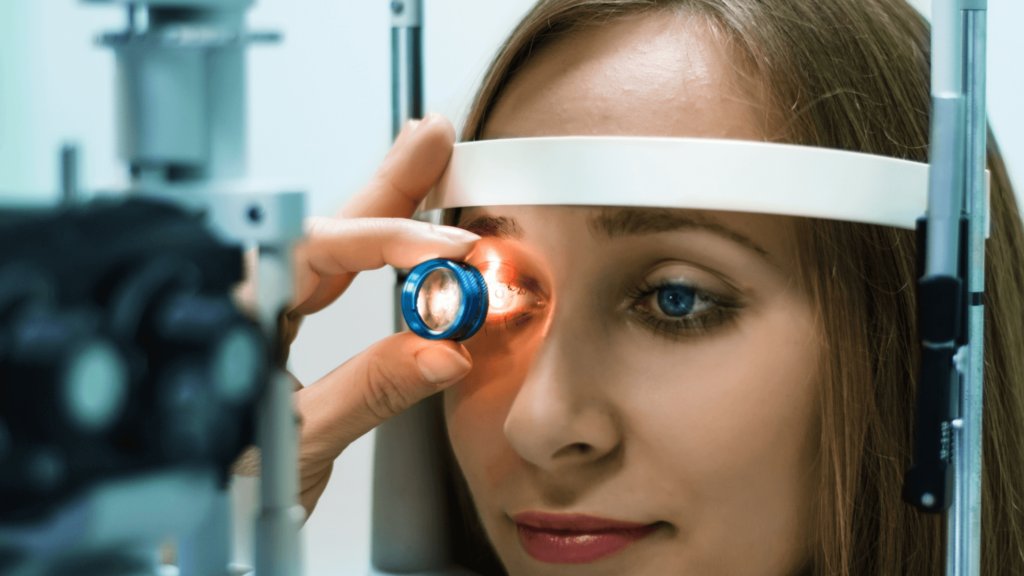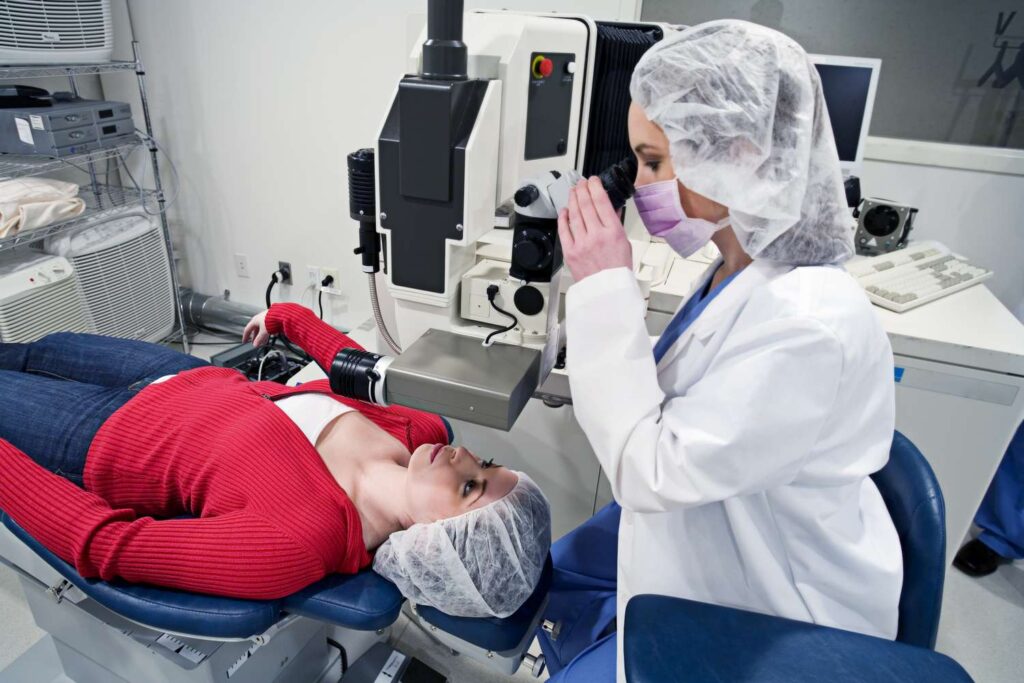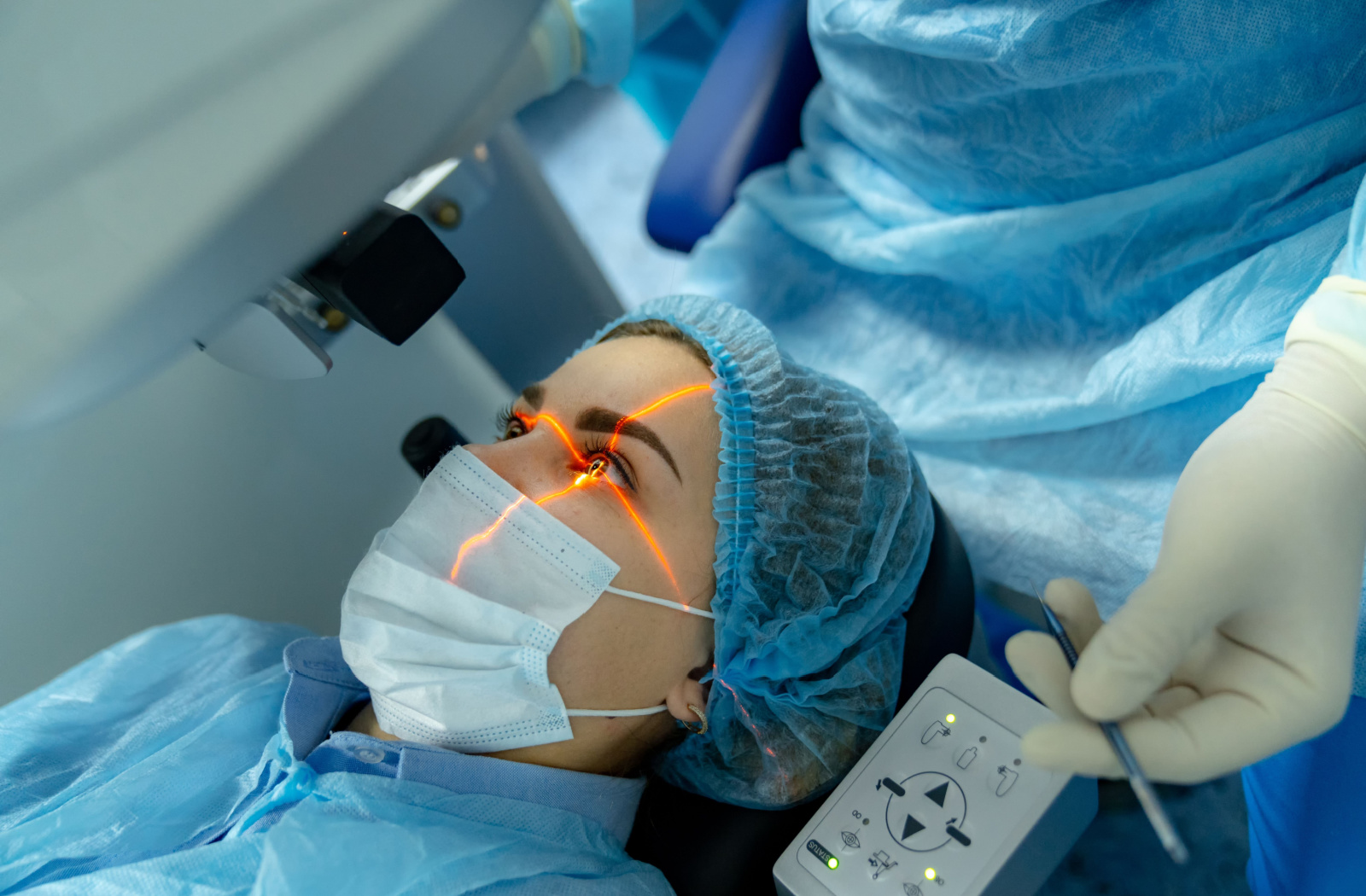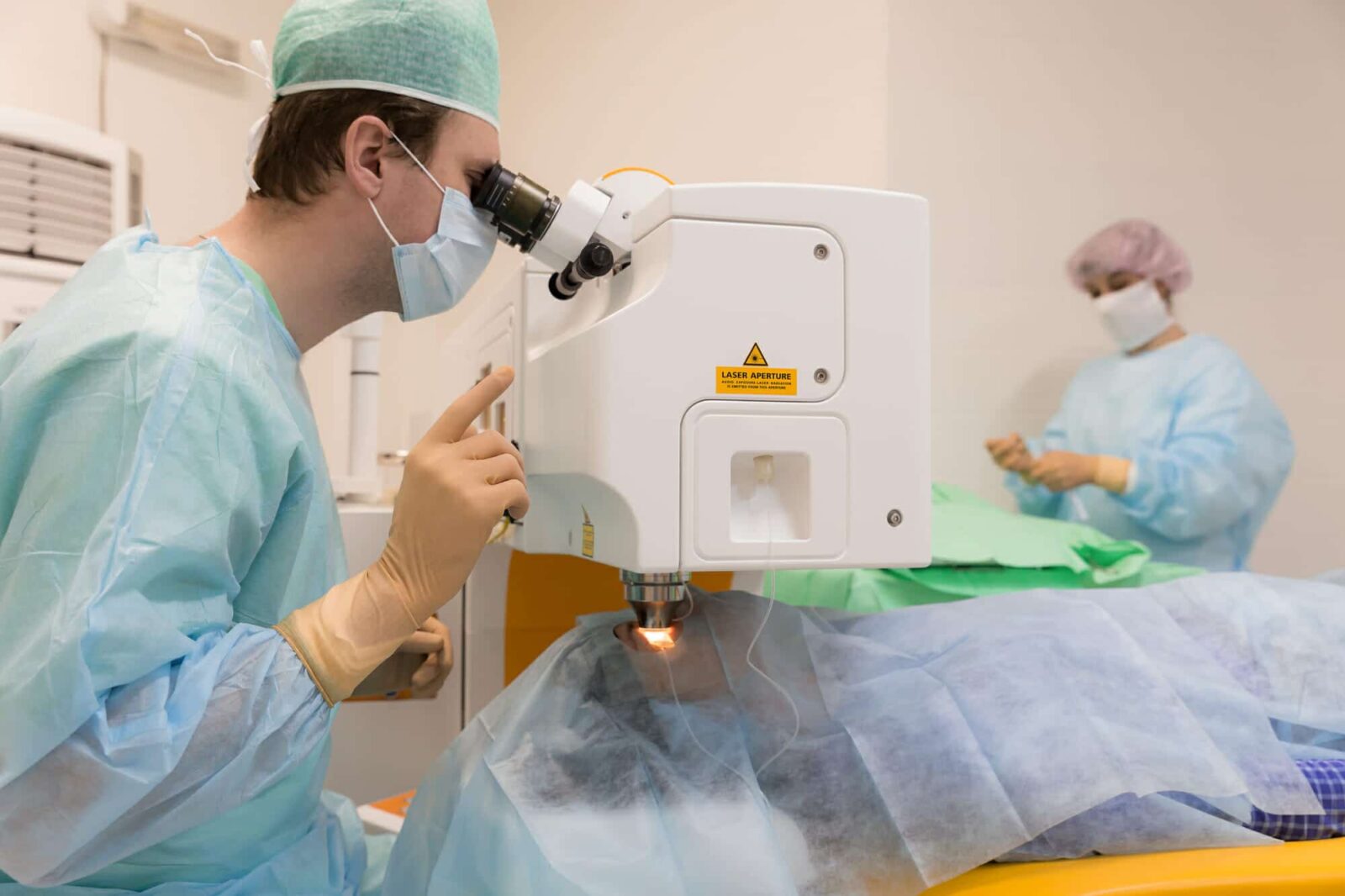Laser eye surgery has become an increasingly popular option for individuals seeking to correct their vision and reduce their reliance on glasses or contact lenses. However, before you make a decision about undergoing this procedure, it is important to fully understand what laser eye surgery entails, as well as consider its potential benefits, risks, and your own suitability for the procedure. In this article, we will explore all these aspects to help you determine whether laser eye surgery is the right choice for you.
Understanding Laser Eye Surgery
What is Laser Eye Surgery?
Laser eye surgery, also known as refractive surgery, is a procedure that utilizes laser technology to reshape the cornea, the clear front part of the eye. By reshaping the cornea, laser eye surgery aims to correct common vision problems such as nearsightedness (myopia), farsightedness (hyperopia), and astigmatism. This procedure can potentially eliminate or significantly reduce the need for glasses or contact lenses.
In conclusion, laser eye surgery can be a life-changing procedure for individuals who desire freedom from glasses or contact lenses. By understanding the procedure, weighing the potential benefits against the risks, evaluating your suitability, and following the necessary pre-surgery guidelines, you can make an informed decision about whether laser eye surgery is the right choice for you. It is crucial to consult with a qualified eye surgeon who can guide you through this process and address any concerns or questions you may have.
Before undergoing laser eye surgery, patients typically undergo a comprehensive eye examination to determine their eligibility for the procedure. Factors such as corneal thickness, pupil size, and overall eye health play a crucial role in determining the suitability of an individual for laser eye surgery. It is essential to consult with a qualified ophthalmologist to discuss the potential risks and benefits of the surgery.

How Does Laser Eye Surgery Work?
The most common type of laser eye surgery is LASIK (Laser-Assisted in Situ Keratomileusis). During the LASIK procedure, a thin flap is created on the cornea, which is then lifted to expose the underlying corneal tissue. An excimer laser is then used to precisely reshape the cornea, allowing light to properly focus on the retina. The flap is then repositioned, and it typically adheres without the need for stitches.
LASEK (Laser-Assisted Subepithelial Keratectomy) is another type of laser eye surgery. Similar to LASIK, LASEK also involves reshaping the cornea with an excimer laser, but without the creation of a flap. Instead, the top layer of corneal cells is loosened and gently moved aside to allow access to the corneal tissue underneath. Once the cornea is reshaped, the top layer of cells is repositioned.
Another less common type of laser eye surgery is PRK (Photorefractive Keratectomy). In PRK, the outer layer of the cornea, called the epithelium, is completely removed before the cornea is reshaped with an excimer laser. The epithelium naturally regenerates after the surgery, but the recovery time for PRK is typically longer compared to LASIK or LASEK.
The Benefits of Laser Eye Surgery
Improved Vision Quality
One of the main benefits of laser eye surgery is the potential for improved vision quality. Many people experience significantly clearer vision after the procedure, often achieving 20/20 vision or better. This can enhance various aspects of daily life, from reading signs and watching TV to participating in sports and other activities.
Furthermore, laser eye surgery can correct common vision problems such as nearsightedness, farsightedness, and astigmatism. This means that individuals who undergo the procedure may no longer need to rely on glasses or contact lenses to see clearly, providing them with newfound freedom and convenience in their daily routines.
To learn more benefits of laser eye surgery click here.
Long-Term Cost Efficiency
Although the upfront cost of laser eye surgery may seem substantial, it is important to consider the long-term cost savings. Over time, the expense of purchasing prescription glasses, contact lenses, and related appointments can add up significantly. By investing in laser eye surgery, you can potentially save money in the long run. Read more about prescription on https://hpi.georgetown.edu/rxdrugs/
Moreover, the convenience of not having to constantly purchase and update prescription eyewear can be a significant advantage. Imagine the freedom of waking up and being able to see clearly without the need to fumble for glasses or put in contact lenses. Laser eye surgery offers not only financial benefits but also a lifestyle change that many find invaluable.
The Risks and Potential Complications of Laser Eye Surgery
Considering laser eye surgery? It’s important to be well-informed about the risks and potential complications associated with this procedure. While the majority of individuals experience successful outcomes, it’s crucial to understand both short-term side effects and long-term risks.
Short-Term Side Effects
Like any surgical procedure, laser eye surgery carries some risks and potential side effects. Immediately following the surgery, you may experience temporary side effects such as dry eyes, sensitivity to light, glare, halos around bright lights, and fluctuating vision. These side effects typically subside within a few days or weeks as the eyes heal.
It’s common to experience some discomfort or irritation in the days following the surgery, but this can usually be managed with prescribed eye drops and proper rest. It’s important to follow your doctor’s post-operative care instructions diligently to ensure optimal healing and minimize the risk of complications.
Long-Term Risks
While the majority of individuals experience successful outcomes with laser eye surgery, there are potential long-term risks to be aware of. These risks may include the development or worsening of dry eye syndrome, overcorrection or undercorrection of vision, regression of the treatment effect over time, and the potential need for additional follow-up procedures.
It’s crucial to attend all scheduled follow-up appointments with your eye surgeon to monitor your healing progress and address any potential issues promptly. By staying informed and proactive about your eye health, you can help mitigate the risks associated with laser eye surgery and enjoy clear vision for years to come. Click here to find more about healing.
Evaluating Your Suitability for Laser Eye Surgery
Age and Laser Eye Surgery
Age is an important consideration when determining your suitability for laser eye surgery. In general, individuals must be at least 18 years old, as vision tends to stabilize by this age. However, there is no upper age limit, and many older adults have successfully undergone laser eye surgery. It is crucial to consult with an experienced eye surgeon to assess your specific situation.
Furthermore, while age is a significant factor, the stability of your vision over time is equally important. Your eye surgeon will evaluate the consistency of your prescription to ensure that your vision has not significantly changed in the past year. This stability is crucial for the success of the surgery and the long-term outcomes.
Health Conditions and Laser Eye Surgery
Certain health conditions and medications may affect your eligibility for laser eye surgery. For example, individuals with uncontrolled diabetes, autoimmune diseases, or certain eye conditions may not be suitable candidates. It is essential to disclose your complete medical history and any medications you are taking to your eye surgeon during the evaluation process.
In addition to the mentioned health conditions, factors such as pregnancy and breastfeeding can also impact your candidacy for laser eye surgery. Hormonal changes during pregnancy and breastfeeding can cause fluctuations in vision, making it advisable to wait until hormonal levels have stabilized post-pregnancy before considering the procedure. Your eye surgeon will provide guidance on the optimal timing for surgery based on your individual circumstances.

Preparing for Laser Eye Surgery
Consultation and Eye Examination
Prior to undergoing laser eye surgery, you will have a consultation with an eye surgeon who specializes in refractive surgery. This initial meeting is crucial as it allows the surgeon to evaluate your candidacy for the procedure. Your eyes will be thoroughly examined using advanced technology to assess your current vision prescription, corneal thickness, pupil size, and overall eye health. The surgeon will also discuss the potential risks, benefits, and expected outcomes of the procedure, ensuring that you have a comprehensive understanding of what to expect.
It is important to communicate openly with your surgeon during this consultation, sharing any relevant medical history or concerns you may have. This will help the surgeon tailor the treatment plan to your specific needs, ultimately leading to a more successful outcome.
Pre-Surgery Guidelines
Before your scheduled surgery date, your eye surgeon may provide you with specific guidelines to follow. These guidelines typically include instructions regarding the use of preservative-free eye drops to prepare your eyes for the procedure, discontinuing certain medications that could interfere with the surgery or recovery process, avoiding the use of makeup and lotions on the day of surgery to reduce the risk of infection, and arranging for transportation to and from the surgical facility as you will not be able to drive immediately after the surgery.
Additionally, your surgeon may advise you to abstain from wearing contact lenses for a certain period before the surgery to …



